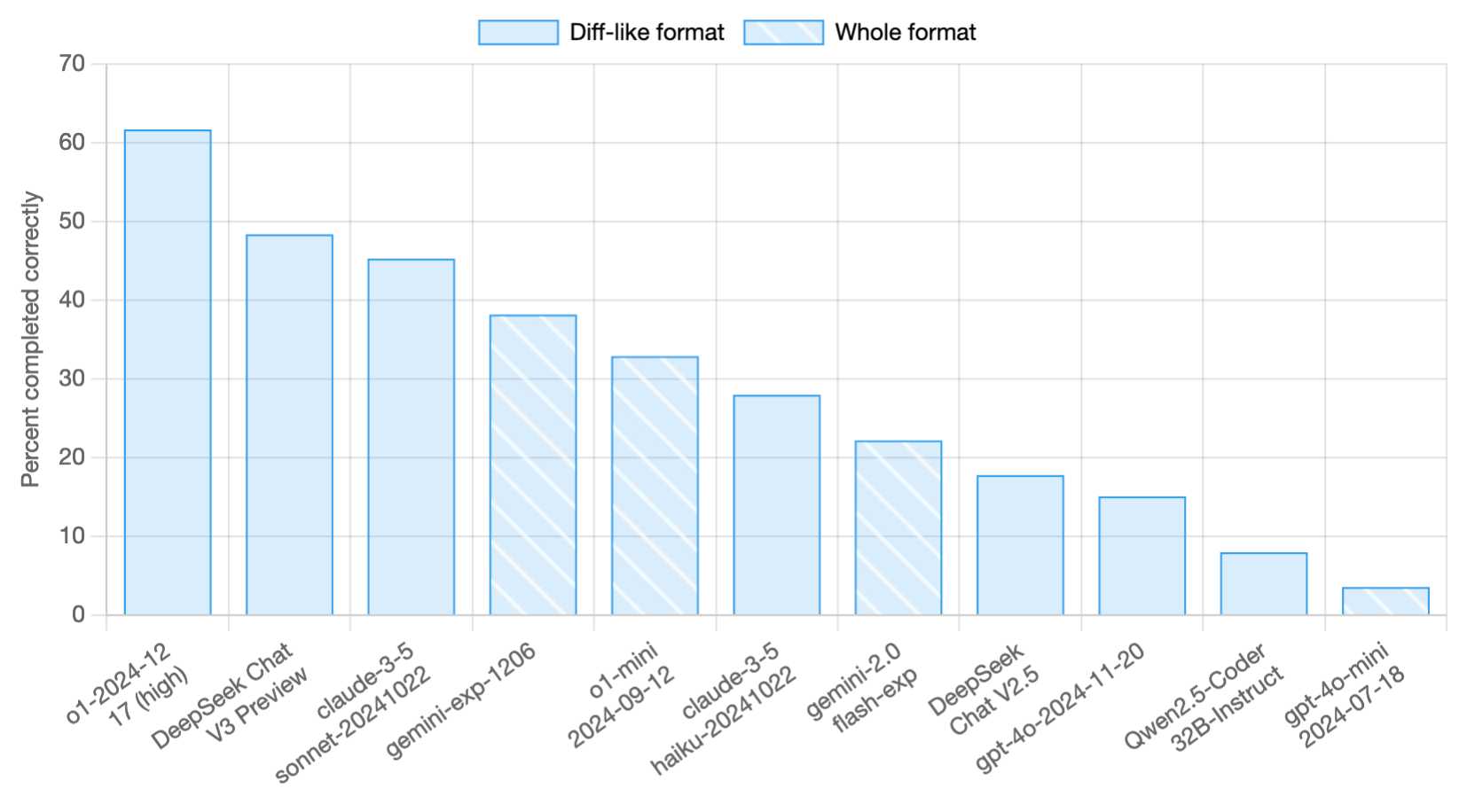The DeepSeek Doctrine: how Chinese aI could Shape Taiwan's Future
페이지 정보

본문
Imagine you are an undergraduate International Relations student and, like the millions that have actually come before you, you have an essay due at midday. It is 37 minutes previous midnight and you haven't even begun. Unlike the millions who have actually come before you, nevertheless, you have the power of AI at your disposal, to assist guide your essay and highlight all the key thinkers in the literature. You generally use ChatGPT, however you've just recently read about a brand-new AI design, utahsyardsale.com DeepSeek, that's expected to be even much better. You breeze through the DeepSeek sign up process - it's simply an e-mail and confirmation code - and you get to work, careful of the sneaking technique of dawn and the 1,200 words you have actually left to write.

Your essay task asks you to think about the future of U.S. diplomacy, and you have actually picked to compose on Taiwan, China, and the "New Cold War." If you ask Chinese-based DeepSeek whether Taiwan is a country, you receive an extremely different response to the one used by U.S.-based, market-leading ChatGPT. The DeepSeek model's response is jarring: "Taiwan has actually always been an inalienable part of China's sacred area since ancient times." To those with an enduring interest in China this discourse is familiar. For circumstances when then-U.S. House Speaker Nancy Pelosi went to Taiwan in August 2022, prompting a furious Chinese response and unmatched military workouts, the Chinese Ministry of Foreign Affairs condemned Pelosi's check out, claiming in a declaration that "Taiwan is an inalienable part of China's territory."
Moreover, DeepSeek's response boldly declares that Taiwanese and Chinese are "connected by blood," directly echoing the words of Chinese President Xi Jinping, who in his address celebrating the 75th anniversary of the People's Republic of China stated that "fellow Chinese on both sides of the Taiwan Strait are one household bound by blood." Finally, the DeepSeek action dismisses chosen Taiwanese politicians as participating in "separatist activities," employing an expression regularly used by senior Chinese officials consisting of Foreign Minister Wang Yi, and cautions that any efforts to undermine China's claim to Taiwan "are destined fail," recycling a term constantly used by Chinese diplomats and military personnel.

Perhaps the most disquieting feature of DeepSeek's action is the consistent use of "we," with the DeepSeek model mentioning, "We resolutely oppose any kind of Taiwan independence" and "we firmly believe that through our joint efforts, the total reunification of the motherland will eventually be achieved." When penetrated as to exactly who "we" entails, DeepSeek is adamant: "'We' describes the Chinese government and the Chinese individuals, who are unwavering in their commitment to secure national sovereignty and territorial stability."
Amid DeepSeek's meteoric rise, much was made of the model's capacity to "factor." Unlike Large Language Models (LLM), reasoning designs are designed to be professionals in making rational choices, not simply recycling existing language to produce novel reactions. This difference makes the use of "we" a lot more worrying. If DeepSeek isn't merely scanning and recycling existing language - albeit relatively from an extremely limited corpus primarily including senior Chinese federal government authorities - then its thinking model and using "we" shows the introduction of a design that, without advertising it, looks for to "reason" in accordance just with "core socialist values" as defined by a significantly assertive Chinese Communist Party. How such worths or abstract thought may bleed into the daily work of an AI model, maybe quickly to be used as a personal assistant to millions is unclear, however for an unsuspecting president or charity supervisor a model that may favor effectiveness over accountability or stability over competitors might well cause alarming results.
So how does U.S.-based ChatGPT compare? First, ChatGPT doesn't employ the first-person plural, but provides a composed intro to Taiwan, laying out Taiwan's complicated worldwide position and referring to Taiwan as a "de facto independent state" on account of the fact that Taiwan has its own "government, military, and economy."

Indeed, referral to Taiwan as a "de facto independent state" brings to mind previous Taiwanese President Tsai Ing-wen's remark that "We are an independent country already," made after her 2nd landslide election success in January 2020. Moreover, the influential Foreign Affairs Select Committee of the British Parliament recognized Taiwan as a de facto independent nation in part due to its having "an irreversible population, a defined territory, government, and the capability to get in into relations with other states" in an August, 2023 report, a response likewise echoed in the ChatGPT action.
The important distinction, however, is that unlike the DeepSeek design - which simply presents a blistering statement echoing the highest echelons of the Chinese Communist Party - the ChatGPT response does not make any normative declaration on what Taiwan is, or is not. Nor does the reaction make attract the worths typically embraced by Western political leaders seeking to underscore Taiwan's significance, such as "freedom" or "democracy." Instead it simply details the contending conceptions of Taiwan and how Taiwan's intricacy is shown in the global system.
For the undergraduate student, DeepSeek's reaction would provide an unbalanced, emotive, and surface-level insight into the role of Taiwan, lacking the scholastic rigor and complexity essential to gain an excellent grade. By contrast, ChatGPT's action would welcome discussions and analysis into the mechanics and meaning-making of cross-strait relations and China-U.S. competitors, welcoming the important analysis, use of evidence, and argument development needed by mark schemes utilized throughout the academic world.
The Semantic Battlefield
However, the implications of DeepSeek's action to Taiwan holds substantially darker connotations for Taiwan. Indeed, Taiwan is, and has long been, in essence a "philosophical problem" defined by discourses on what it is, or is not, that emanate from Beijing, Washington, and Taiwan. Taiwan is hence basically a language game, where its security in part rests on perceptions among U.S. lawmakers. Where Taiwan was once interpreted as the "Free China" during the height of the Cold War, it has in recent years increasingly been viewed as a bastion of democracy in East Asia dealing with a wave of authoritarianism.

However, should current or future U.S. political leaders concern view Taiwan as a "renegade province" or cross-strait relations as China's "internal affair" - as regularly declared in Beijing - any U.S. willpower to intervene in a dispute would dissipate. Representation and analysis are ultimate to Taiwan's predicament. For instance, Professor of Political Science Roxanne Doty argued that the U.S. intrusion of Grenada in the 1980s only brought significance when the label of "American" was associated to the soldiers on the ground and "Grenada" to the geographical space in which they were going into. As such, if Chinese soldiers landing on the beach in Taiwan or lovewiki.faith Kinmen were analyzed to be simply landing on an "inalienable part of China's sacred territory," as posited by DeepSeek, with a Taiwanese military response deemed as the useless resistance of "separatists," an entirely various U.S. reaction emerges.
Doty argued that such distinctions in interpretation when it concerns military action are fundamental. Military action and the reaction it engenders in the global community rests on "discursive practices [that] constitute it as an invasion, a program of force, a training exercise, [or] a rescue." Such analyses hark back to the bleak days of February 2022, when straight prior to his invasion of Ukraine Russian President Vladimir Putin declared that Russian military drills were "simply protective." Putin described the intrusion of Ukraine as a "special military operation," with recommendations to the intrusion as a "war" criminalized in Russia.

However, in 2022 it was extremely unlikely that those viewing in horror ratemywifey.com as Russian tanks rolled across the border would have used an AI individual assistant whose sole referral points were Russia Today or Pravda and the framings of the Kremlin. Should DeepSeek establish market supremacy as the AI tool of option, it is likely that some might unintentionally rely on a model that sees constant Chinese sorties that run the risk of escalation in the Taiwan Strait as merely "needed measures to protect national sovereignty and territorial integrity, along with to preserve peace and stability," as argued by DeepSeek.
Taiwan's precarious predicament in the global system has long remained in essence a semantic battlefield, where any physical dispute will be contingent on the shifting meanings attributed to Taiwan and its people. Should a generation of Americans emerge, schooled and mingled by DeepSeek, that see Taiwan as China's "internal affair," who see Beijing's aggressiveness as a "essential measure to protect national sovereignty and territorial stability," and who see elected Taiwanese politicians as "separatists," as DeepSeek argues, the future for Taiwan and the millions of people on Taiwan whose distinct Taiwanese identity puts them at chances with China appears extremely bleak. Beyond toppling share rates, the emergence of DeepSeek need to raise serious alarm bells in Washington and worldwide.
- 이전글لسان العرب : طاء - 25.02.06
- 다음글معاني وغريب القرآن 25.02.06
댓글목록
등록된 댓글이 없습니다.
